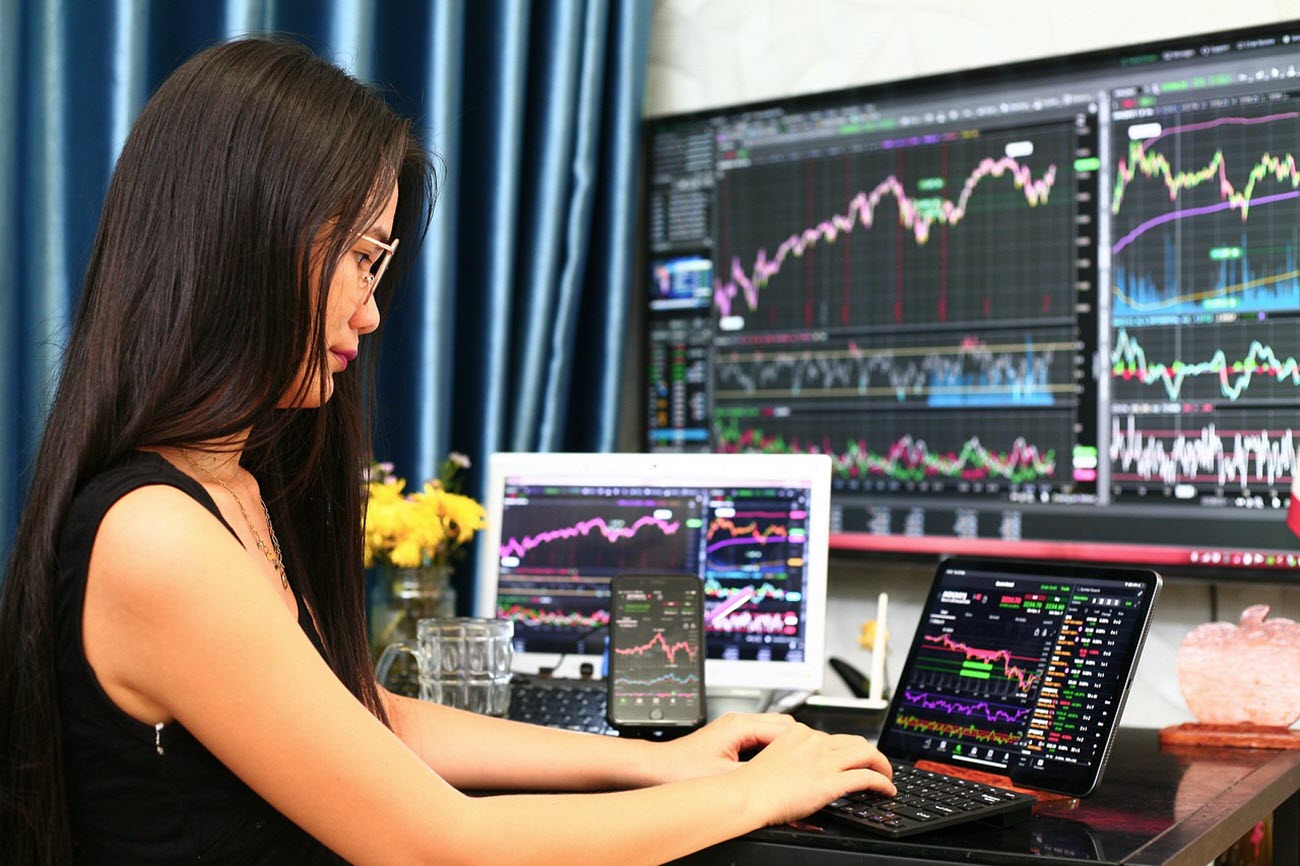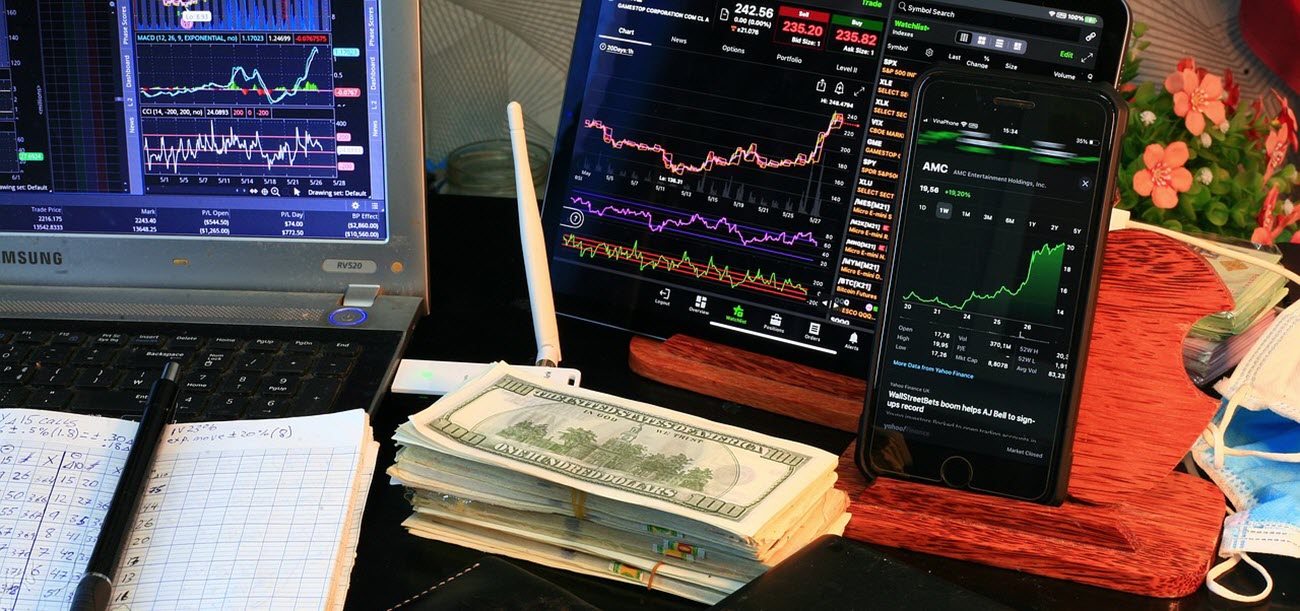Forex trading, or foreign exchange trading, is a vast and dynamic market that attracts millions of participants worldwide. It’s essential to understand what forex trading is, why people choose to trade forex, the risks involved, how to start forex trading, and how to find a good forex broker. This article will delve into these aspects to give you a comprehensive understanding of forex trading.

What is Forex Trading?
Understanding the Basics
Forex trading is buying and selling currencies in the global foreign exchange market. The forex market is the world’s largest and most liquid financial market, boasting an average daily trading volume exceeding $6 trillion. Currencies are traded in pairs, such as the Euro/US Dollar (EUR/USD) or the US Dollar/Japanese Yen (USD/JPY). The goal of forex trading is to profit from fluctuations in the exchange rates between two currencies.
Forex trading occurs 24 hours a day, five days a week, involving a global network of banks, financial institutions, and individual traders. Unlike stock trading, which takes place on centralized exchanges, forex trading happens over the counter (OTC) through an electronic network of participants.
Why People Choose to Trade Forex
There are several reasons why people choose to trade forex, including:
Market Liquidity and Accessibility
The forex market’s size and liquidity make it attractive for traders, allowing for easy entry and exit of positions. This high level of liquidity also results in relatively low bid-ask spreads, reducing trading costs for market participants.
24-Hour Trading
Forex trading operates 24 hours a day, allowing traders to enter and exit positions whenever they want. This continuous trading environment allows traders to react instantly to global economic events and news releases, providing opportunities for profit.
Leverage
Forex trading often involves the use of leverage, which enables traders to control larger positions with a smaller initial investment. Leverage can amplify profits but also increases the risk of losses, so it’s crucial to use it responsibly.
Diversification
Forex trading allows investors to divers ify their portfolios by gaining exposure to different currencies and economies. This diversification can help reduce overall portfolio risk and enhance potential returns.
Profit Potential in Both Rising and Falling Markets
In forex trading, participants can profit from both rising and falling markets by going long (buying) or short (selling) on a currency pair. This ability to take advantage of market movements in either direction offers traders more opportunities to profit from price fluctuations.
The Risk of Forex Trading
Understanding the Dangers
While forex trading offers numerous benefits, it also comes with inherent risks that traders must be aware of:
Leverage Risk
While leverage can amplify profits, it can also magnify losses. Using excessive leverage without proper risk management can lead to significant losses and even wipe out a trader’s account.
Market Volatility
Forex markets can experience sudden and extreme price movements, sometimes within a short period. These volatile market conditions can lead to substantial losses if traders do not have adequate risk management strategies in place.
Counterparty Risk
In the OTC forex market, traders are exposed to counterparty risk, which arises if their forex broker or other market participants fail to meet their financial obligations.
Execution Risk
Forex traders may face execution risk due to system failures, connectivity issues, or other technical problems that may lead to delays in trade execution or unfavorable prices. These issues can impact a trader’s ability to enter or exit positions at desired levels, potentially resulting in losses.

How to Start Forex Trading
Education and Preparation
Before entering the forex market, investing time in education and preparation is crucial. This involves learning about forex market fundamentals, technical analysis, risk management strategies, and trading psychology. Numerous online resources, courses, and books are available to help novice traders develop the necessary skills and knowledge to navigate the forex market successfully.
Practice with a Demo Account
Before committing real money to forex trading, practising with a demo account is highly recommended. A demo account allows traders to simulate real trading conditions using virtual money, allowing them to test their strategies and develop their trading skills without risking real capital.
Develop a Trading Plan
A well-defined trading plan is essential for successful forex trading. A trading plan should outline a trader’s goals, risk tolerance, trading strategy, and rules for trade management. This plan should be tested and refined using a demo account before applying it to live trading.
Finding a Good Forex Broker
Choosing a reliable and trustworthy forex broker is critical in starting your forex trading journey. Here are some factors to consider when selecting a forex broker:
Regulation and Security
Ensure that the broker is regulated by a reputable financial authority, such as the U.S. Commodity Futures Trading Commission (CFTC) or the UK Financial Conduct Authority (FCA). Regulated brokers must adhere to strict regulatory requirements, providing an added layer of security for traders.
Trading Platform and Tools
Evaluate the broker’s trading platform and the tools theyoffer, such as charting capabilities, technical indicators, and order execution options. Ensure that the platform is user-friendly, reliable, and suits your trading style and requirements.
Commissions and Spreads
Compare the commission structures and spreads offered by different brokers, as these can significantly impact your trading costs. Opt for a broker with competitive spreads and transparent fee structures.
Customer Support
Effective customer support is essential in addressing any issues or concerns that may arise during your trading journey. Choose a broker with a responsive and knowledgeable customer support team, available through multiple channels, such as phone, email, or live chat.
Account Types and Minimum Deposits
Consider the various account types offered by brokers, along with their minimum deposit requirements. Choose an account that aligns with your trading goals and initial investment size.
Deposit and Withdrawal Options
Ensure that the broker provides convenient and secure deposit and withdrawal options. Also, check for any fees and processing times associated with these transactions.
This article was last updated on: April 4, 2023
